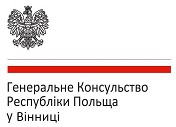Репутація політичної партії: основні підходи до її розуміння
Ключові слова:
political party, reputation of apolitical party, personal reputation, electoral preferences, political imageАнотація
The article studies the key approaches to understanding the reputation of one of the key subjects of the political process, i.e. of a political party. The Ukrainian society currently has a growing demand for the reputation of political parties. The author emphasizes that the most citizens of Ukraine choose apolitical party not by their political programs, but rather by their images created by the mass media. There is a solid tendency, that results of the elections depend on the reputation of a political party, which may serve as a guarantor of social stability of the society in general. That is why mass consciousness has a growingly fixed vision of reputation as a certain value, the existence of which determined the success of a political force.
The author stresses that certain aspect of the concept of “reputation” have already been studied, primarily in the political leadership theory and during the studies of images of political leaders. The understanding of a reputation has been personalized since ancient times. That is why, the article highlights and explains the personalized approach to this phenomenon. The article shows that Confucius, Laozi, Protagoras, Plato, Titus Livy, Plutarch, N. Machiavelli and others have determined a direct dependency between the welfare of whole nations and the correspondence of the ruler to a certain “ideal image”, which consisted of a number of moral and ethical qualities.
It has been determined that, unlike the reputation of a political party, the study of personal reputation is explained by a considerably late appearance of actual political parties. At the start of the process, we may remember the socalled movement of “The Populares” – a sociopolitical coalition, which started to form soon after the end of the second Punic war (218-201 BC). The first prototypes of modern political parties appear only during the periods of bourgeois revolutions and the appearance of parliamentary forms of fighting for power. The concrete examples may be the 16701680-s in England (Tory and Whigs); the 1780-1790-s in France (Jacobins and Girondins). The first parties of a modern type appear in the first half of the 19th century. On the basis of this, a conclusion is drawn that due to objective reasons, namely, the time of party formation, there is a longer history of studying the reputation of a person.
The author notes that the concept of a “reputation of a political party” is not used as a fixed term in modern political science. It is rather used in association with such terms as “brand”, “image”, “cognitive image”. At the same time, image and reputation have different purposes – image is aimed exclusively at the consumer of services whereas reputation is aimed at consumers, employees, partners, society etc. The author substantiates that personal reputation (reputation of the leader of a political party) is connected to the reputation of a political party in general. This may be seen on the examples of modern “personalized” political parties of Ukraine. Unlike the image, reputation must be suited in the context of personality, an actual living person as it may not exist separately from its bearer.
In the context of understanding the reputation of a political party, the practical contents of the concept of “sustainability of electoral preferences” is revealed. It has been determined that the shift of the reputation of a certain political party may objectively influence the shift of electoral preferences. This, in turn, may signify that a sustainable reputation of apolitical party is a certain guarantee of the sustainability of electoral preferences.
The author uses various approaches – economic, legal, sociological, communicative, systemic, socio-philosophic – to reputation analysis. In general, the study concludes that reputation of a political party must be viewed as a phenomenon of public opinion, evaluation of moral, business and professional qualities of the members of a certain party. It should be viewed as a non-material resource or a non-material assets of a political organization.
##submission.downloads##
Опубліковано
Номер
Розділ
Ліцензія
Авторське право (c) 2018 Олексій Буряченко

Ця робота ліцензується відповідно до Creative Commons Attribution-NonCommercial 4.0 International License.
Автор, який подає матеріали до друку, зберігає за собою всі авторські права та надає відповідному виданню право першої публікації, дозволяючи розповсюджувати даний матеріал із зазначенням авторства та джерела первинної публікації, а також погоджується на розміщення її електронної версії на сайті Національної бібліотеки ім. В.І. Вернадського, в міжнародних базах даних CEJSH, Index Copernicus, POL-index, Polska Bibliografia Naukowa.

